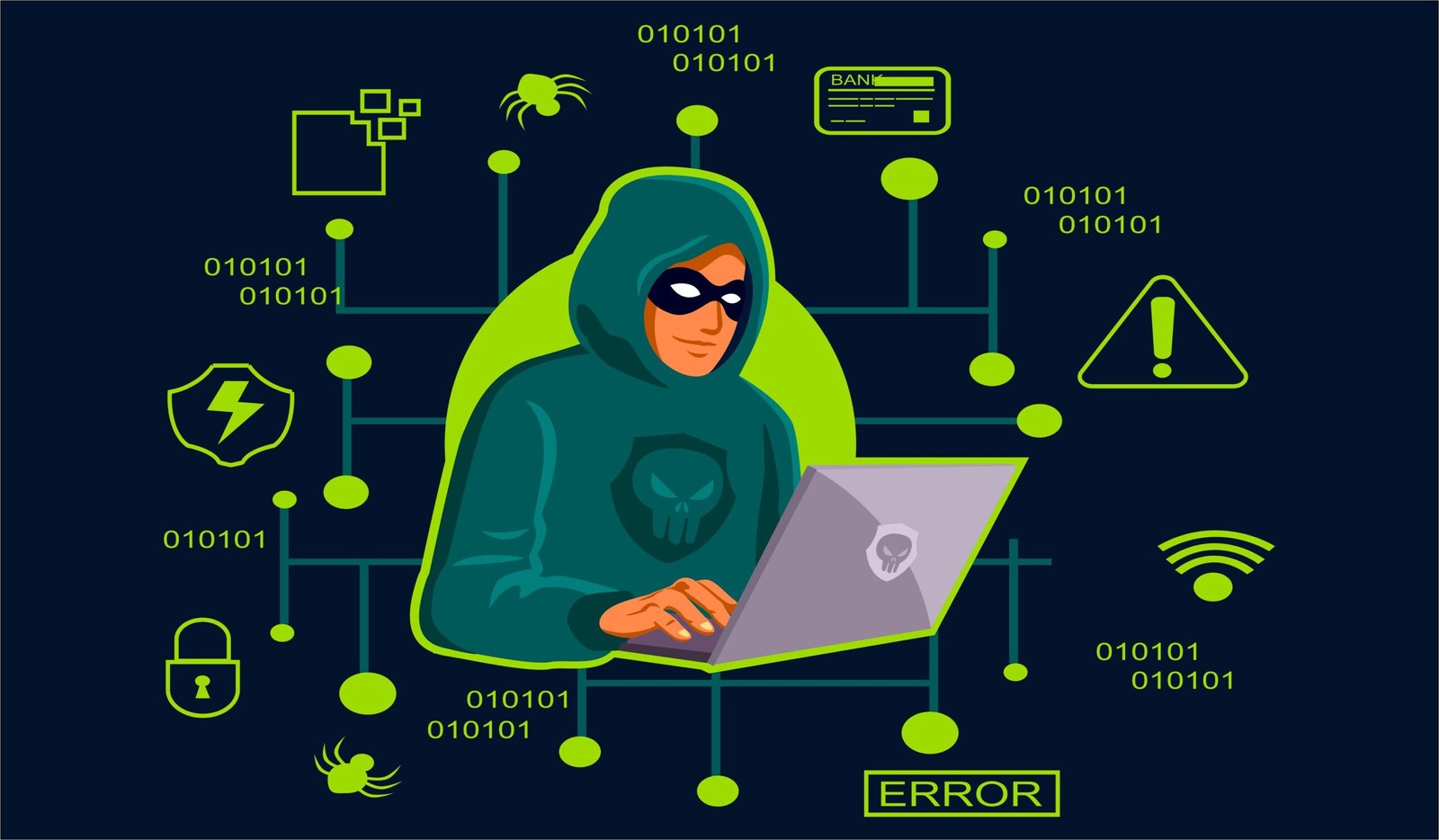In today’s digital age, the internet has become a part of our everyday life. From online shopping and banking to social networking and digital payments, we rely on technology for almost everything. However, with this growing dependence on the internet, cyber crimes are also increasing at an alarming rate. Cyber crime is any illegal activity carried out using computers, networks, or digital devices. Being aware of the different types of cyber crimes is the first step toward protecting ourselves online.
1. Phishing Attacks
Phishing is one of the most common types of cyber crimes. In this method, cyber criminals trick individuals into revealing sensitive information such as usernames, passwords, or bank details. They usually send fake emails or messages that look like they are from trusted organizations. You could experience financial loss or identity theft by clicking on any of these links.
Awareness Tip: Always check the sender’s email address and avoid clicking on suspicious links.
2. Identity Theft
Identity theft occurs when cyber criminals steal personal information like name, date of birth, credit card details, or Aadhaar number to commit fraud. The stolen identity is often used to take loans, make unauthorized purchases, or commit crimes in the victim’s name.
Awareness Tip: Protect your personal documents, use strong passwords, and enable two-factor authentication wherever possible.
3. Hacking

Gaining unauthorized access to a computer or network system is considered hacking. Hackers exploit security loopholes to steal confidential data, disrupt services, or spread malware. While some hackers do it for financial gain, others may target government or corporate websites to cause damage.
Awareness Tip: Regularly update your software and operating system to close security vulnerabilities.
4. Ransomware Attacks
Ransomware is a type of malicious software that locks users out of their systems or encrypts their files. Cyber criminals then demand a ransom, usually in cryptocurrency, to restore access. These attacks have become common against businesses, hospitals, and even government agencies.
Awareness Tip: Keep regular backups of important files and avoid downloading attachments from unknown sources.
5. Cyber Bullying and Harassment
Cyber bullying refers to online harassment through social media platforms, chat rooms, or emails. Victims may face abusive messages, threats, or public humiliation. This type of cyber crime particularly affects teenagers and young adults, sometimes leading to severe psychological stress.
Awareness Tip: Do not respond to bullies online. Report abusive accounts and use privacy settings to protect your profiles.
6. Online Scams and Fraud
Fraudulent schemes like lottery scams, fake job offers, and online shopping frauds are widespread in the digital space. Victims often lose money by trusting fake websites or transferring funds to unknown accounts.
Awareness Tip: Verify the authenticity of websites before making payments and avoid sharing banking details with unknown sources.
7. Child Exploitation and Pornography
Unfortunately, the internet has also been misused for child exploitation and distribution of illegal content. This is a serious cyber crime that not only violates laws but also causes lifelong harm to victims. Governments and organizations across the world are actively working to prevent such crimes.
Awareness Tip: Parents should monitor their children’s online activities and educate them about safe internet practices.
8. Cyber Stalking
Cyber stalking happens when an individual uses digital platforms to continuously harass, threaten, or monitor someone. This could involve sending repeated messages, spreading rumors, or even tracking someone’s location using technology.
Awareness Tip: If you are a victim of cyber stalking, block the offender and report the issue to the authorities.
9. Software Piracy
Downloading or distributing copyrighted software without proper authorization is considered software piracy. This not only causes financial loss to software companies but also exposes users to malware and security risks.
Awareness Tip: Always download software from official websites and avoid pirated copies.
Cyber crimes are growing rapidly, and anyone using the internet is at risk. From phishing attacks and identity theft to cyber bullying and ransomware, these crimes can cause financial loss, emotional distress, and even long-term damage. Awareness is the key to staying safe online. By using strong passwords, keeping software updated, avoiding suspicious links, and practicing safe browsing habits, we can protect ourselves and reduce the chances of falling victim to cyber criminals.
Multi Level Money Marketing Legal in India
Restrictions Against Inter-Caste or Inter-Religious Marriages in India
Read Also: Law Websites
![]()





